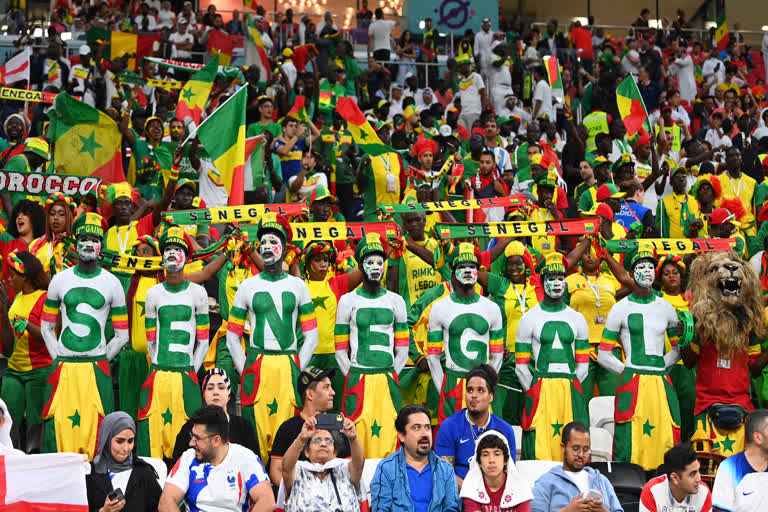Hyderabad:A seemingly displeased Princess Margaret, Countess of Snowdon, all decked-up and posing for her birthday photoshoot, a customary in the royal family, expressed her intense loathing for the event and rigmarole that she has to contend with for her family. She talked about the frivolousness of posing for the cameras and wondered what it would be like to set foot in the "real world" instead.
To this, her mother Queen Elizabeth The Queen Mother justified the idiosyncrasies the family has to undertake. She said, "No one wants complexity and reality from us. People have that enough in their own lives. They want us to help them escape."
Along the same lines, Indian superstar Shah Rukh Khan has emphatically defended his commercially successful films saying "movies are for entertainment while messages are meant for postal services." Khan tells that he prefers people to be embarking on a 3-hour of a joyful ride, which they might be deprived of in the real world. In both incidents, they talk about how escapism can relieve people from their otherwise difficult lives.
Contrarily, we have others like famed Israeli Director Nadav Lapid. He is assiduously followed these days by the Indians after his salvo at The Kashmiri Files. Lapid believes that art is a way of expressing unpopular and subversive ideas, of articulating the concerns of the weak.
Read: FIFA World Cup: All you need to know so far
These are two schools of thought -- one sees it as pure entertainment, others in using the platform to raise the voices of the oppressed. Both have one commonality -- they intend to provide relief to the distressed.
At the onset of the FIFA World Cup in Qatar, various European and American agencies expressed concerns over Human Rights violations of migrant workers. The number of dead laborers while erecting Qatar's stadium hovers at around 400 to 500 people as put by the secretary general of Qatar’s World Cup organizing committee to British TV presenter Piers Morgan.
The anti-hijab supporters too found a space to openly reject Iran's government moral policing and the killing of Mahsa Amini in custody. Fans and journalists sporting rainbow flags and armbands expressed solidarity with the LGBTQ+ community in a nation where homosexual acts are illegal.
"I think it's important that voices are raised against a practice that discriminates on the basis of a person's sexuality, which is not a matter of choice. A platform like the World Cup must be used to highlight the violation of a person's rights," tells activist Anjali Gopalan, who has spent over two decades fighting for the LGBTQ+ community in India, to ETV Bharat.
Morocco team celebrates after beating Portugal to become the first ever African team to qualify for the semi-finals. In protests, anger, and outrage, football has somehow managed to steer swiftly. It has illuminated the minds and dazzled the eyes of those who are in sincere love with the beautiful game. Morocco became the first representative of Africa to storm into the semifinals, defeating Cristiano Ronaldo's Portugal. Argentina, the South American country, dealing with years of the economic rut and political turmoil, beat the Netherlands and is two games away from fulfilling Messi's dream. Croatia, with a populace of just about 39 lakh, have successfully been able to churn out the finest of talents since their first game against Estonia in 1994. A perennial underdog, the last world cup finalists are set to face Argentina in the semi-finals in what promises to be a classic.
As much as veteran journalist-author Vijay Lokapally is for using such platforms being pushed for global attention, he contends that political issues will never overshadow the game because sport will always be the focus. He is relieved that a point is made by the protesters in a way that doesn't hurt the players' performance by distracting them.
"Olympics is an example from the time of 1932 Berlin when the blacks used the platform to showcase their talent. But that didn't distract any of the players on the field," he says. When the host country, Qatar, was at the receiving end of flak given its human rights records by the western world, FIFA president Gianni Infantino lashed out at the hypocrisy of those countries teaching lessons on racism, and that they should be "apologising for the next 3,000 years" for their own past mistakes.
"We are told to make many lessons from some Europeans, from the Western world. I'm European. I think for what we Europeans have been doing for 3,000 years around the world, we should be apologising for the next 3,000 years before starting to give moral lessons to people." The interview came in the back of Qatar administration banning alcohol in the stadium and concerns over the conduct of women and their clothing arriving from the western world to attend matches.
With four games remaining for the final showdown, Lokapally, lauds Qatar saying that a conservative way of living can't hinder the organization of an event. "Qatar has proved a great host to tell the world how they can be do efficient. Efforts were made in the run-up to the tournament to belittle their abilities and the labor issues were raised in the western media but Qatar remained determined. It goes to show how non-European nations are ready to play host."
While countries like Qatar may not be in sync with the western culture, their conservative ways angering the western world, sports should not succumb to monopoly. As much as human rights violations should be investigated, football or the Olympics are not anyone's marionette. The success of the tournament has given hope to non-European nations that they too can conduct such a tournament.
Maybe in India.
